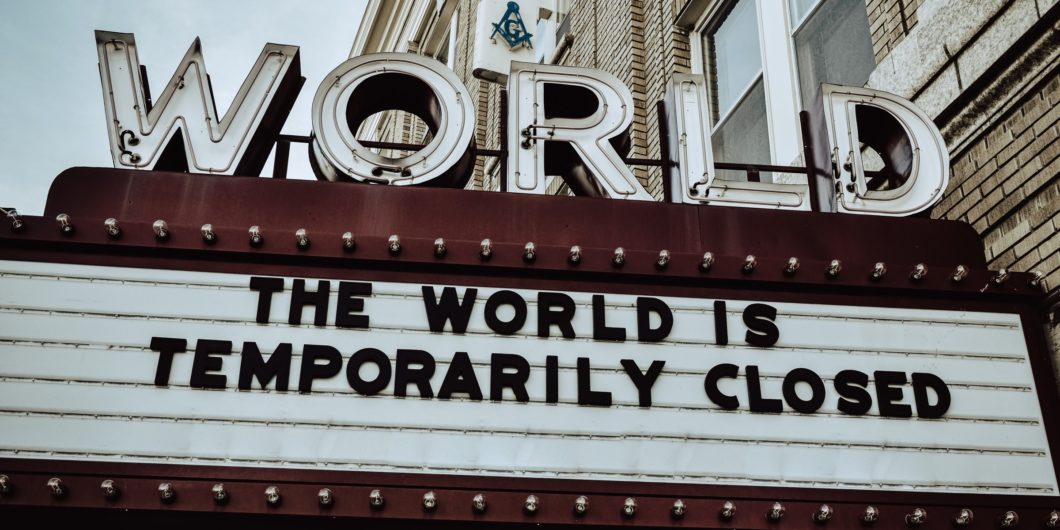The Scotsman's formula for mutual understanding and tranquility is not made for an ideal world, but rather the broken one we inhabit.
Rules for the Virus
The coronavirus raises what economists call a problem of externality. An externality occurs when an actor does not internalize all the costs of his or her behavior. A company that pollutes, for example, earns a profit for itself but imposes costs on the surrounding community. Hence some social or legal norm is required to prompt the company to internalize these costs and reduce pollution. Similarly, with the coronavirus, individuals do not bear the full cost when they engage in behavior that risks infection, because once infected they become vehicles that infect others.
The hard question for society is how to get people to internalize these costs and thus engage in less risky behavior while shutting down as little productive economic behavior as possible. Currently, many state governments, like that in my home state of Illinois, have used blanket and rigid rules that eliminate all but essential activities. The rules do prevent behavior that leads to infecting others but at great cost to prosperity and, indeed, human flourishing.
While some of these rules may be the best that can be done on short notice and in the short term, they are crude and inefficient in that they shut down some activity that more sophisticated and flexible norms would not. Regardless of the progress of the virus, about which there are many uncertainties, governments need to consider how they can rely on more flexible rules and encourage voluntary social norms that will create better tradeoffs between the risk of infection and the diminution of economic activity.
The coronavirus crisis is thus in part a legal crisis. The serious legal issue comes in matching both the form and content of the norm to the threat we face. And the shape of response needs to evolve over time as we learn more about the nature of the virus.
Categorical Legal Rules
The typical rule that state governments have promulgated is to shut down all but “essential business” and to restrict the movement of their citizens outside the home. These rules are “categorical rules” in that they define legality by a category of action. Because they are not calibrated to the actual effects of individual action, they are inefficient by some margin. For instance, there are surely some non-essential businesses that can be run without substantial risk of infection. But categorical orders, like the one in Illinois, typically prevent them from operating.
One reason for their inefficiency is that such orders often impose one set of rules for widely differing communities in the state. It seems unlikely that the same set of rules are best suited to dense cities like Chicago and to all the rural areas in Illinois.
Broad categorical rules can be worse than inefficient. They can be self-defeating because centralized decision-makers lack the local knowledge to understand the secondary consequences of the rules. A simple example is occurring in my neighborhood in Chicago. The Mayor closed the park system near Lake Michigan to prevent crowds from gathering. This includes the Riverwalk near my house. But the Riverwalk is a broad boulevard where it is easy to social distance. The effect of its closing has been to increase crowds in the streets around my home. The application of the rigid rule here increases the risk of infection even as it makes it harder to exercise.
A more important secondary consequence appears to be a reduction in people seeking treatments for other serious diseases. If the government’s rules are supposed to save lives, the ones lost in this way detract from the rule’s core purpose. It might be thought that this consequence stems from fear of the virus, not the rules. But draconian rules can amplify fear.
The costs and counterproductivity of broad, categorical rules have yet another serious social downside. They lead many people to think that the government is overreacting and unnecessarily curtailing their liberties. This has already resulted in protests, which may themselves spread the virus, and a more general and diffuse distrust of government at a time when social unity is more important than ever.
Moving to Flexible Rules and Performance Standards
It would be better to move to what economists call performance standards. These standards evaluate the dangers businesses pose for transmission and incentivize them to change their behavior so that they can open. For instance, if we understand how masks and distance reduce the risk of transmission, businesses could open so long as they used the right combination of distancing and masks to reduce transmission. Government could also provide emergency tax credits for this equipment, because businesses are no more responsible for the virus than the people their costly protections will help.
Because of our limited knowledge about the virus, these more relaxed rules might still have to be top-down regulations at first, requiring masks or social distancing in certain circumstances, though they would still be more flexible than the current blanket shutdown rules. But over time they should evolve to look more like standards that hold businesses responsible for reducing the risk of transmission to an acceptable level. Particularly as we learn more about the virus, these performance standards can return economic activity to what it was before.
The Role of Social Norms
Social behavior is also likely to change over time in ways that will make top-down rules less necessary. Thus, bottom-up norms can reduce infection rates, reducing the need to rely on top-down ones, even the more flexible performance standards. The public did not initially know of COVID-19’s virulence. But once they understood the risks, most would have changed their behavior even without direction from the government. For instance, the handshake has disappeared, replaced by the elbow bump at least for the duration of the crisis. (Indeed, I wonder whether shaking hands will ever recover from this shock!) Handwashing, which is quite sporadic during ordinary times, has become an obsession for many, although the government, of course, cannot enforce a rule on handwashing.
It might be thought that social norms could never reduce the infection rate enough, because people may flout beneficial social norms that are personally costly. But social norms can still substantially reduce the problem of externalities in some situations.
Many of the social norms that can reduce infection rates have small individual costs. Handwashing and even mask-wearing have trivial costs. And most people are willing to suffer small costs for public benefit. After all, even young people who are not much harmed by the virus have older relatives who will be. And these small acts of public benefit can add up to reduce the rate of transmission.
Social Enforcement of Norms
Moreover, social norms can be enforced by social pressure even without direct government action. Those who do not conform to good social norms connected to the virus will endure social costs, like adverse comment and loss of reputation. To be sure, the effect of group enforcement is likely to be stronger in a more homogeneous society than in ours, but all societies will engage in some social enforcement in a time of crisis. As Dan Klein notes, Sweden seems to be doing quite well with few categorical legal rules, perhaps because it is a more homogenous, high-social-trust society than ours.
The market may also be a source of enforcement. For instance, stores that do not put up partitions between customers and cashiers or provide face masks for employees will draw adverse comment and indeed scathing blog, Twitter, and newspaper accounts. They may also lose worried customers.
To be sure, some people will flout social norms. In Chicago, a widely-circulated video showed hundreds of reckless people crowded into a house and yard for a Saturday evening party. This kind of conduct invites adverse social comment (which it certainly received) and yet happened anyway.
Nevertheless, it should be noted that this party also flagrantly violated the categorical legal rules of Illinois, not merely social norms. The question is thus not whether legal rules, when perfectly enforced, will be better than social norms, but whether rules, as actually enforced, are better. Moreover, the United States is not an authoritarian country, making rules that affect personal freedom necessarily weak. We do not resemble Singapore where an individual was prosecuted for leaving quarantine ten minutes early to get breakfast. Our best solutions must work with the society we have, not the one that we might imagine.
To be clear, draconian legal rules may have been useful at first, although some, in my view, were unnecessarily broad from the outset. They got people’s attention and may have helped begin a cascade of good social norms. But over time the government must consider replacing some, if not most, of these rules with performance standards and information campaigns that bring the facts about the transmission of the virus and its prevention to the public in the form of recommendations. Better information will generate social norms more sensitive to the complex and situational tradeoffs we face.


